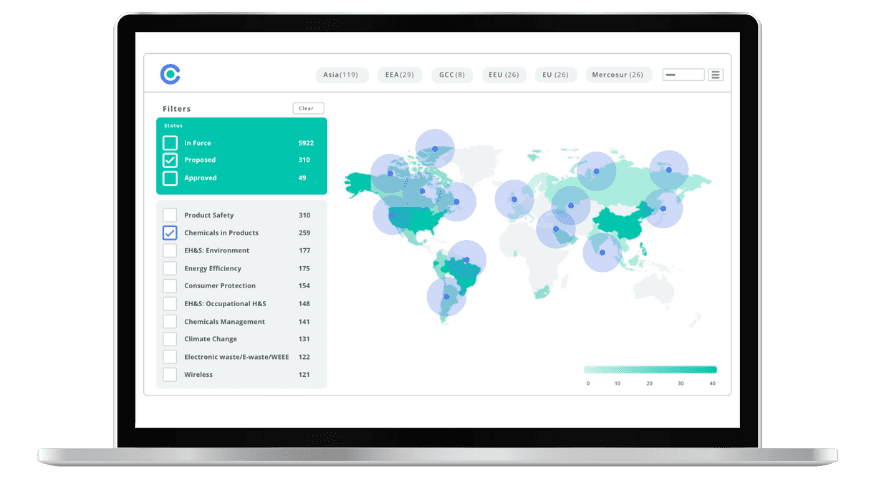
Empowering Consumers for the Green Transition: EU Adopts Stricter Rules on Greenwashing and Misleading Product Information

This blog was originally posted on 11th March, 2024. Further regulatory developments may have occurred after publication. To keep up-to-date with the latest compliance news, sign up to our newsletter.
AUTHORED BY EMILIA ASSENZA, SENIOR REGULATORY COMPLIANCE SPECIALIST, COMPLIANCE & RISKS
Introduction: Directive (EU) 2024/825
After its formal adoption by the European Council on 20 February 2024, Directive (EU) 2024/825 was published in the Official Journal of the European Union on 6 March, as part of the European Green Deal and the continuous efforts of the EU to enhance consumer protection and environmental protection through the promotion of more sustainable decisions.
The main objective of the new Directive is to enable consumers to make better informed decisions and stimulate the circulation of durable and sustainable products. The focus is on preventing unfair commercial practices which can mislead consumers with regard to the environmental, social and sustainability/circularity aspects of the product.
To that end, Directive (EU) 2024/825 makes changes to both Directive 2005/29/EC concerning unfair business-to-consumer commercial practices in the internal market and Directive 2011/83/EU on consumer rights. In this blog, we examine these key changes.
Environmental/Sustainability Claims
Article 6(1) of Directive 2005/29/EC is amended to include to the list of misleading actions the commercial practices which contain false information in relation to environmental or social characteristics of the product and its circularity aspects, such as durability, reparability or recyclability.
Paragraph (2) is also amended so that it is considered a misleading practice any environmental claim related to future environmental performance which is not supported by clear, objective, publicly available and verifiable commitments.
Advertising of benefits to consumers that are irrelevant and do not result from any feature of the product or business is also considered misleading.
The definition of “environmental claim” is very broad as it contains any message or representation which is not mandatory under Union or national law, in any form, including text, pictorial, graphic or symbolic representation, such as labels, brand names, company names or product names, in the context of a commercial communication, and which states or implies that a product, product category, brand or trader has a positive or zero impact on the environment or is less damaging to the environment than other products, product categories, brands or traders, or has improved its impact over time.
Information on the sustainability of the product is also regulated by setting out the conditions for the use of sustainability labels. The display of a sustainability label that is not based on a certification scheme or not established by public authorities is considered an unfair commercial practice. This means that self-certification is prohibited and that the display of a sustainability label will only be possible when it is based on a third-party verification scheme.
Again, the definition of “sustainability label” is very broad as it means any voluntary trust mark, quality mark or equivalent, either public or private, that aims to set apart and promote a product, a process or a business by reference to its environmental or social characteristics, or both, and excludes any mandatory label required under Union or national law.
Further Additions of Commercial Practices which are in All Circumstances Considered Unfair under Annex I
The list of unfair practices in Annex I of Directive 2005/29/EC is extended to include the following practices, not only related to environmental aspects but also to the durability/obsolescence of products:
- Making a generic environmental claim for which the trader is not able to demonstrate recognized excellent environmental performance relevant to the claim (examples of “generic environmental claims are provided in Recital (9) and include “environmentally friendly”, “eco-friendly”, “green”, ”nature’s friend”, “ecological” etc.);
- Making an environmental claim about the entire product or the trader’s entire business when it concerns only a certain aspect of the product or a specific activity of the trader’s business;
- Claiming, based on the offsetting of greenhouse gas emissions, that a product has a neutral, reduced or positive impact on the environment in terms of greenhouse gas emissions;
- Presenting requirements imposed by law on all products within the relevant product category on the Union market as a distinctive feature of the trader’s offer;
- Withholding information from the consumer about the fact that a software update will negatively impact the functioning of goods with digital elements or the use of digital content or digital services;
- Presenting a software update as necessary when it only enhances functionality features;
- Any commercial communication in relation to a good containing a feature introduced to limit its durability despite information on the feature and its effects on the durability of the good being available to the trader;
- Falsely claiming that under normal conditions of use a good has a certain durability in terms of usage time or intensity;
- Presenting a good as allowing repair when it does not;
- Inducing the consumer to replace or replenish the consumables of a good earlier than necessary for technical reasons;
- Withholding information concerning the impairment of the functionality of a good when consumables, spare parts or accessories not supplied by the original producer are used, or falsely claiming that such impairment will happen.
Harmonized Notice and Harmonized Label
Directive 2011/83/EU has been supplemented with a new Article 22a which establishes the use of a harmonized notice and a harmonized label to provide the information concerning guarantees for goods.
The harmonized notice should provide a reminder to the consumers about the legal guarantee of conformity for goods and its main elements, including its minimum duration of two years in accordance with Directive (EU) 2019/771. The harmonized label aims to allow consumers to easily identify which particular good benefits from a commercial guarantee of durability offered by the producer at no additional cost, covering the entire good, and with a duration of more than two years.
By 27 September 2025, the EU Commission shall issue the implementing acts to determine the design and content of such notice and label.
What’s Next for Directive (EU) 2024/825?
Directive (EU) 2024/825 will enter into force on 26 March 2024 (the twentieth day following its publication). Member States have 24 months to adopt the measures to comply with the Directive, i.e. until 27 March 2026. The implementing measures of Member States shall then apply from 27 September 2026.
Stay Ahead Of Regulatory Changes
Accelerate your ability to achieve, maintain & expand market access for all products in global markets with C2P – Your key to unlocking market access, trusted by more than 300 of the world’s leading brands.
C2P is an enterprise SaaS platform providing everything you need in one place to achieve your business objectives by proving compliance in over 195 countries.
C2P is purpose-built to be tailored to your specific needs with comprehensive capabilities that enable enterprise-wide management of regulations, standards, requirements and evidence.
Add-on packages help accelerate market access through use-case-specific solutions, global regulatory content, a global team of subject matter experts and professional services.
- Accelerate time-to-market for products
- Reduce non-compliance risks that impact your ability to meet business goals and cause reputational damage
- Enable business continuity by digitizing your compliance process and building corporate memory
- Improve efficiency and enable your team to focus on business critical initiatives rather than manual tasks
- Save time with access to Compliance & Risks’ extensive Knowledge Partner network

Transform Your Compliance Process
Anticipate regulatory changes and take pre-emptive actions to ensure compliance across your organization with our latest webinar


